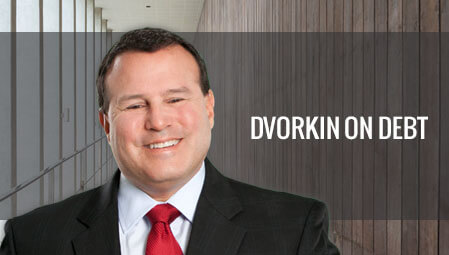As we lurch into 2016, personal debt might be a bigger problem than it was in 2015.
Last year was no winner for average Americans struggling with credit card debt. As I reported in 2015, women and millennials are hurting the most for retirement savings, and even the wealthy are worried if they’ll have enough after they retire.
Now that we’re into February, the first research studies of the years are emerging. Fidelity Investments released its Retirement Savings Assessment study, which had some good news mixed in with the bad…
People are saving more and investing more appropriately for their age, improving the overall state of retirement readiness of households in America. As a result, the number of people who are likely to afford at least their essential expenses in retirement jumped from 38 to 45 percent. However, this means more than half (55 percent) are estimated to be at risk of being unprepared to completely cover essential living expenses in retirement, which includes housing, health care and food.
Credit card debt on the rise
Unfortunately, that may not improve much more this year. Why? Because it’s hard to save for later when you’re struggling with debt now. Experian issued this scary headline recently: Credit card debt reaches highest level since 2009.
Credit card debt broke through the$650 billion in the third quarter of last year. That’s the highest it’s been since the fourth quarter of 2009, when it topped $667 billion.
Experian points to some good news…
Credit card delinquency rates on outstanding balances 60 or more days past due have decreased 71 percent during the same time period. Combining those indicators with the national unemployment rate dropping 50 percent during the same span illustrates a positive economic outlook on credit card trends among lenders and consumers.
I don’t share Experian’s optimistic outlook. I’ve been in this business too long. Here’s why I’m worried about these credit card statistics — which makes me even more worried about those retirement statistics.
The double whammy
While Experian cites how this higher credit card debt isn’t forcing more users into delinquency, I’m more concerned. First of all, just because delinquencies dropped lately doesn’t mean the trend will continue. While the economy is rebounding for some, it certainly isn’t for all. One setback, and those new jobs can disappear — but the credit card bills remain.
More troubling is the fact that credit card debt is rising along with the economic recovery. That means many Americans aren’t using their own economic good news to finally sock away some retirement savings. Instead, they’re going shopping.
It’s not like most Americans are optimistic about their household finances for 2016, either. A new Harris poll shows, “49 percent expect their household’s financial condition will remain the same in the next six months, while roughly a quarter each expect it to get better (26 percent) or worse (24 percent).”
Even worse, those numbers are about the same when they were asked if they thought the overall economy would get better in 2016: “44 percent of Americans expect the U.S. economy to stay the same in the coming year, with a third (32 percent) expecting it to get worse and a quarter (24 percent) expecting it to improve.”
What you can do
I said this often in 2015, so let me repeat it for the first time in 2016: You can’t save for retirement if you can’t pay your bills when you’re working.
Want to save for retirement? Stop thinking about saving for retirement — and take action to eliminate your credit card debt. While that sounds daunting, it’s actually the easiest New Year’s resolution you can make.
Simply call Debt.com at 1-800-810-0989. We can put you in touch with a certified credit counselor for a debt analysis. Both the analysis and the call are free. It’s the best way to counter-punch your debt.








